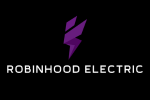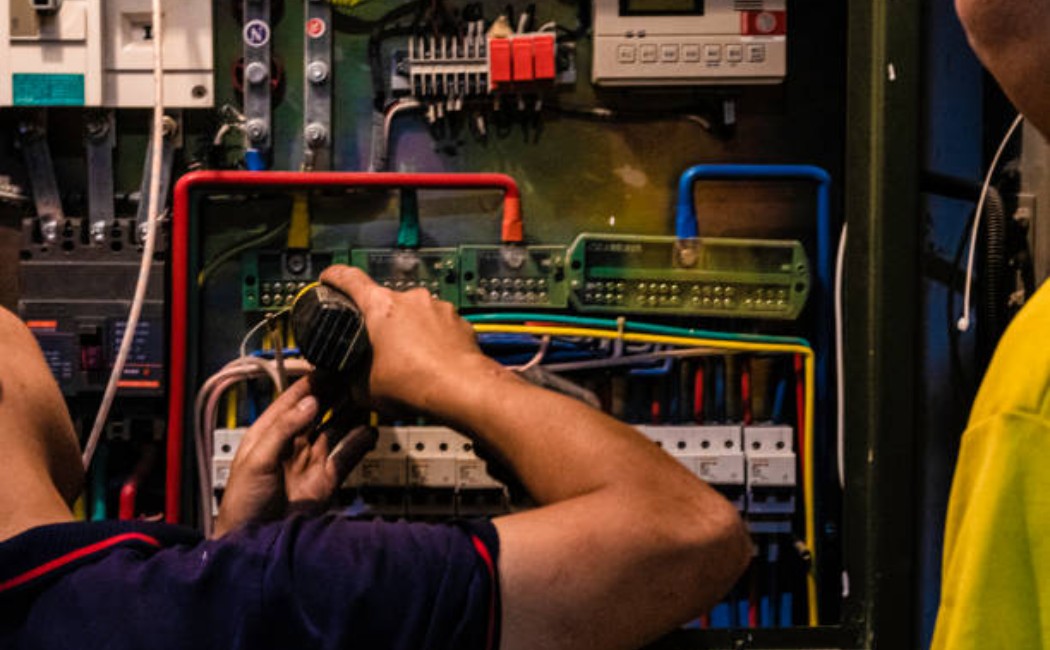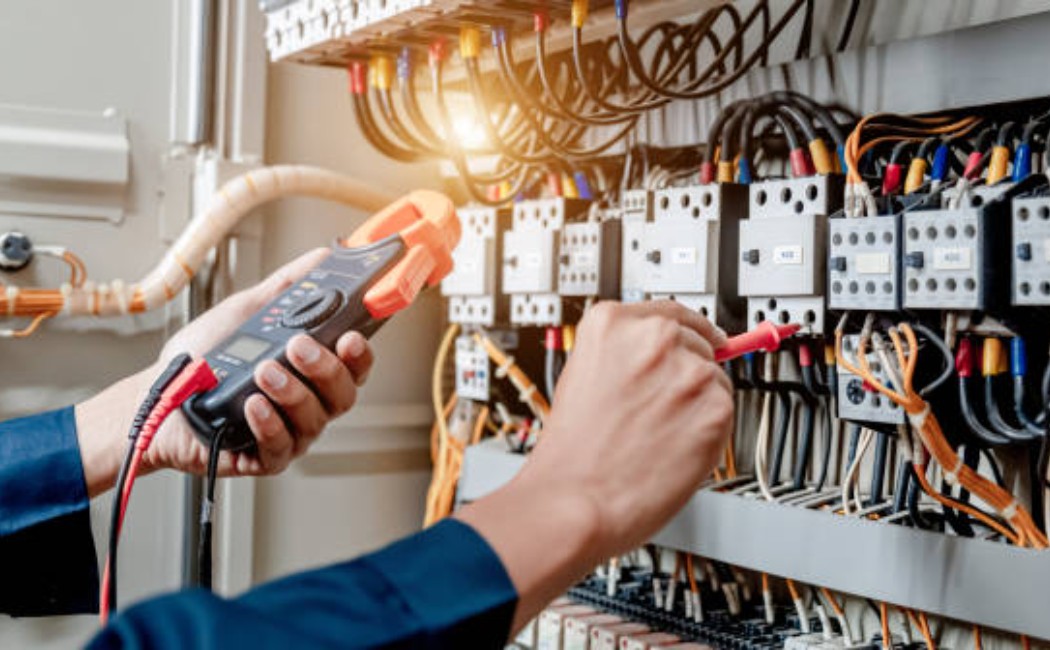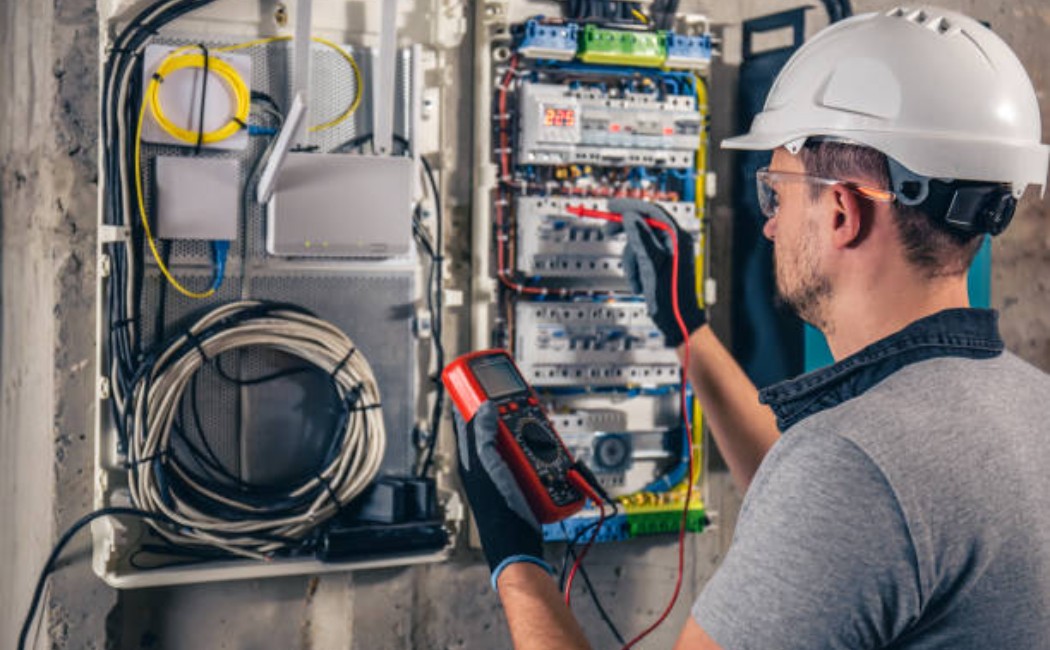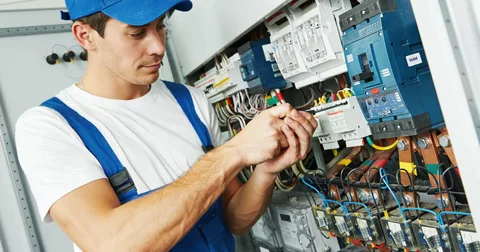In 2025, electric vehicles will gain immense popularity. As this popularity grows, more homeowners are realizing the convenience and practicality of having a charging station at home. Installing an EV charger at home is better than relying solely on public charging stations. Home EV charger provides efficiency, flexibility, and cost savings in the long run.
However, with so many residential EV charger options available, the question many EV owners face is: How to choose an EV charger that’s right for your home installation? In this comprehensive guide of Robinhood Electric, we walk you through everything you need to know, from EV charger types for home to practical EV charger installation tips, so you can confidently select the best EV charger for home use.
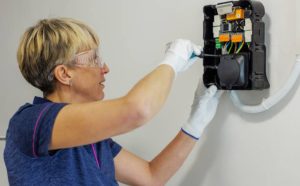
Understanding EV Charger Types for Home
When planning for EV charging installation & services, the first step is understanding the EV charger types for the home. Chargers are generally categorized into three levels:
Level 1 Chargers
- Power Source: Standard 120V outlet.
- Charging Speed: 2–5 miles of range per hour.
- Best For: Occasional drivers or plug-in hybrid owners.
- Pros: No special installation required.
- Cons: Too slow for full battery EVs.
Level 2 Chargers
- Power Source: 240V outlet, similar to what large appliances use.
- Charging Speed: 10–60 miles of range per hour, depending on the model.
- Best For: Daily EV users who need overnight charging.
- Pros: Balance of speed and affordability.
- Cons: Requires professional installation.
Level 3 (DC Fast Chargers)
- Power Source: High-voltage direct current supply.
- Charging Speed: 60–100+ miles of range in 20–30 minutes.
- Best For: Public stations and commercial settings.
- Pros: Ultra-fast charging.
- Cons: Extremely costly, not practical for residential use.
For most homeowners, Level 2 is the best EV charger for the home because it balances speed, cost, and practicality.
How to Choose an EV Charger
Selecting the right charger involves more than just plugging in a device. Here are the factors to consider when deciding how to choose an EV charger:
1. Vehicle Compatibility
Check your EV’s charging capabilities. Some vehicles support higher charging speeds, while others have limitations. Match your charger’s power output to your EV’s onboard charging system.
2. Charging Speed
Think about your daily driving habits. If you drive long distances, a faster Level 2 charger will save you time. For occasional use, even a slower option may suffice.
3. Smart Features
Modern chargers offer Wi-Fi or Bluetooth connectivity, scheduling options, and smartphone apps. These features help track energy usage and reduce costs by charging during off-peak hours.
4. Safety & Certifications
Always choose chargers certified by regulatory bodies (like UL or ETL). Safety should never be compromised, especially when dealing with high-voltage equipment.
5. Indoor vs. Outdoor Installation
Consider where the charger will be placed. Outdoor chargers need to be weather-resistant and durable.
6. Budget & Incentives
While upfront costs can be significant, many governments offer rebates or tax credits for installing a home EV charging station. Factor these into your decision.
EV Charger Installation Guide
Now that you’ve narrowed down your options, let’s look at what goes into installing a charger. This EV charger installation guide will help you understand the process:
-
Assess Electrical Capacity:
Your home’s electrical panel must support the added load of a Level 2 charger. An electrician can determine if upgrades are needed.
-
Hire Professionals:
DIY installation is risky. Always rely on EV charging installation & services provided by licensed electricians.
-
Choose Location:
Install the charger in a convenient spot, usually near where you park your vehicle. Ensure the cable length is comfortable.
-
Permits & Codes:
Some jurisdictions require permits or inspections. Professional installers will handle this for compliance and safety.
-
Mounting & Wiring:
The charger is securely mounted on a wall or pedestal, and wiring is connected to the electrical panel.
-
Testing & Setup:
Once installed, the system is tested to ensure it works properly. Smart chargers are configured with apps for scheduling and monitoring.
Following these EV charger installation tips ensures safe, reliable, and efficient performance.
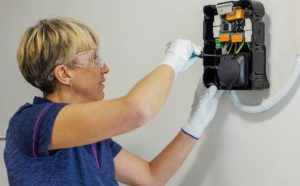
Residential EV Charger Options: What’s on the Market?
When researching residential EV charger options, you’ll come across several brands and models. Here are the common choices:
- Plug-in vs. Hardwired Chargers: Plug-in chargers are portable and easier to replace. Hardwired chargers are permanent, often more durable, and may handle higher amperage.
- Smart Chargers: These offer app control, energy monitoring, and scheduling for cost-efficient charging.
- Basic Chargers: Simple, no-frills models that get the job done without advanced features.
- Amperage Range: Chargers typically range from 16A to 48A. Higher amperage delivers faster charging, provided your EV supports it.
Choosing the best EV charger for your home depends on your driving habits, budget, and desired convenience.
EV Charger Installation Tips
Here are some expert EV charger installation tips to make the process smoother:
- Plan for Future EVs: If you anticipate owning multiple EVs, consider a charger with load-sharing capabilities.
- Upgrade Electrical Panel if Needed: Don’t overload your system. It’s safer to invest in an upgrade than risk tripped breakers.
- Use a Dedicated Circuit: Sharing circuits can cause overheating. A dedicated line is the safest choice.
- Weather Protection: For outdoor setups, invest in weather-resistant enclosures.
- Cable Management: Wall-mounted holsters or retractable cables prevent wear and tear.
- Smart Scheduling: Take advantage of lower electricity rates by charging overnight.
Common Mistakes to Avoid
When researching EV charger installation & services, watch out for these pitfalls:
- Skipping Electrical Assessment: Installing a charger without checking the panel capacity can be dangerous.
- Choosing Wrong Charger Size: A 48A charger is wasted if your EV maxes out at 32A.
- DIY Installation: This often leads to code violations, safety risks, or voided warranties.
- Ignoring Future Needs: Don’t just plan for your current EV; consider your next one.
Future Trends in Home EV Charging
The EV charging industry is rapidly evolving. Here’s what to expect:
- Bidirectional Charging (V2G): Future chargers may allow your EV to send power back to the grid.
- Wireless Charging: Inductive charging pads could eliminate cables.
- Smarter Energy Integration: Chargers will increasingly integrate with solar panels and home battery systems.
Choosing the right residential EV charger options today can prepare you for tomorrow’s innovations.
Why Choose Robinhood Electric For EV Charger Installation?
Choosing the right EV charging experts also plays a crucial role. We have years of experience in the field, and we have built trust as the professional EV charger installers in your area. By choosing us as your home EV charging company, you can rest assured as we ensure convenience, cost savings, efficiency, and property value. Installing a home charger is an investment, and choosing wisely ensures long-term benefits.
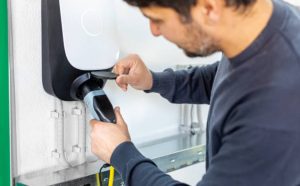
Final Thoughts
Installing the best EV charger for home is one of the best investments you can make as an EV owner. It not only saves time and money but also enhances the overall driving experience. By understanding the EV charger types for home, evaluating your needs, and following an EV charger installation guide, you can confidently select the best EV charger for home use. Investing in us provides you with the best quality EV Charging Services, ensuring that you get the best results
Frequently Asked Questions
What is the best EV charger for home use?
The best EV charger for home use is typically a Level 2 charger. It provides a balance of affordability, charging speed, and convenience, making it suitable for most electric vehicle owners.
How do I know which EV charger types for home are right for me?
The right charger depends on your driving habits, vehicle capacity, and budget. Level 1 chargers work for occasional drivers, while Level 2 chargers are ideal for daily EV use.
Can I install a home EV charging station myself?
It’s not recommended. For safety and compliance, always hire licensed professionals who specialize in EV charging installation & services. They ensure proper wiring, permits, and electrical load capacity.
What should I look for when choosing residential EV charger options?
Look for chargers with the right amperage for your car, safety certifications, smart features (like Wi-Fi and scheduling), and weather protection if installed outdoors.
Do I need a permit for EV charger installation?
In many areas, yes. Permits ensure the installation meets electrical codes. A professional installer will usually handle the permitting process.
